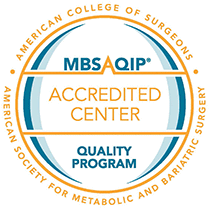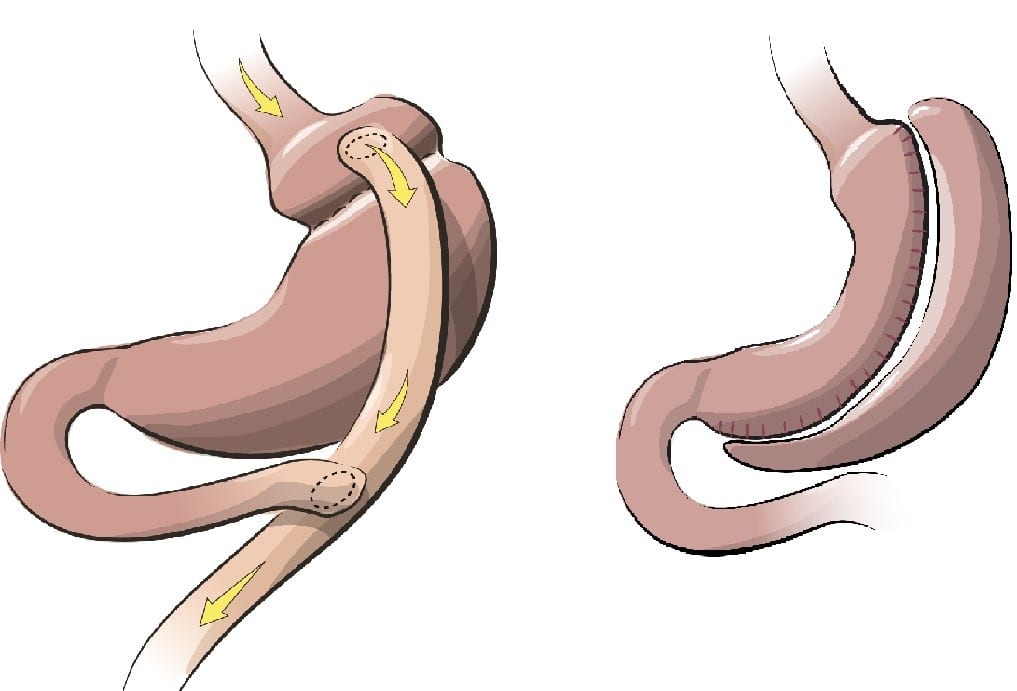When patients are obese, it can be very difficult to lose weight, particularly enough weight to dramatically change a health condition. Bariatric surgery includes a variety of procedures to help obese patients lose dramatic amounts of weight. In the various bariatric surgeries performed by Dr. Jeffrey S Fronza, changes are made to the patient’s stomach or small intestine, or both. Patients are seen at the Bariatric clinic at Central DuPage Hospital.
A variety of long-term studies have shown these procedures to be effective for creating significant long-term weight loss, recovery from diabetes, improvement in cardiovascular risk factors, and a extending life.
Dr. Jeffrey S. Fronza performs laparoscopic roux-en-y gastric bypass and laparoscopic sleeve gastrectomy surgery. Her believes weight-loss surgery must be tailored to the patient’s needs and desires with the surgeon’s thoughtful guidance. Patients interested in bariatric surgery are seen in consultation at the Bariatric Clinic at Central DuPage Hospital.
Northwestern Medicine Central DuPage Hospital is part of a MBSAQIP accredited center of excellence. It has a proven track record of caring for the bariatric patient through the preoperative, perioperative, and postoperative process. MBSAQIP data consistently demonstrates that their patients achieve superior weight loss compared to patients cared for at other accredited centers and cared for by other surgeons.


Dr. Fronza performs all his bariatric procedures at Northwestern Medicine Central DuPage Hospital. All patients are evaluated in a multidisciplinary fashion in partnership with the Northwestern Medicine Bariatric Surgery and Metabolic Health Program.
Requirements:
Prior to your consultation, you should determine if you are eligible for surgery and if your insurance covers bariatric surgery.
- You must have a body mass index of 40 or higher to be eligible for surgery.
- If you have a body mass index between 35 and 39 and you have at least one medical problem that is made worse by obesity, then you may be eligible.
- Verify that weight loss surgery is a "covered benefit" by your policy.
- Verify that Northwestern Memorial Hospital is a part of your coverage (please note: if your insurance does not cover surgery, a self-pay option may be available).
Please contact the office to schedule an initial consultation to discuss the life-changing possibilities of weight-loss surgery.

Bariatric Surgery FAQs
Bariatric surgery is also known as weight loss surgery. Some of these procedures reduce the patient’s weight by reducing the size of the stomach with a gastric band or through removal of a portion of the stomach. These procedures are known as gastric band surgery, sleeve gastrectomy, or duodenal switch. Another option re-routes the small intestine to a small stomach pouch in a procedure known as gastric bypass surgery. These procedures are usually performed laparoscopically, meaning they are minimally invasive and do not use “open” surgical methods.
While there can be exceptions in cases of certain health risks, one of two qualifications must exist for bariatric surgery:
- BMI ≥ 40, or more than 100 pounds overweight
- BMI ≥ 35 and at least one or more obesity-related co-morbidities such as type II diabetes, hypertension, sleep apnea and other respiratory disorders, non-alcoholic fatty liver disease, osteoarthritis, lipid abnormalities, gastrointestinal disorders, or heart disease.
These are the two weight loss surgeries we typically perform at Northwestern Surgical Associates. These surgeries are generally performed using a laparoscope.
- Gastric Bypass — The Roux-en-Y procedure is designed to reduce the amount of food a person is able to eat by cutting away part of the stomach. After the surgery, the stomach is smaller, so the patient feels full after eating far less food. This has been the most commonly performed weight loss procedure.
- Gastric Sleeve — This surgery removes most of the stomach and leaves only a narrow section of the upper part of the stomach, which is then referred to as a gastric sleeve. This banana-shaped stomach is reduced to around 15 percent of the original stomach size. This procedure is not reversible.
Success with bariatric surgery is often defined as achieving a 50 percent loss or more of excess body weight and maintaining that level for at least five years. Studies have shown that, following surgery, most patients lose weight rapidly and continue to do so until 18 to 24 months after the procedure. Patients may lose 30 to 50 percent of their excess weight in the first six months, and 77 percent of their excess weight as early as 12 months after their surgery. Patients can usually maintain a 50 to 60 percent loss of their excess weight for the long term.
Beyond the weight loss, most patients also experience results in the form of changes in many medical conditions, such as diabetes, hypertension, acid reflux, sleep apnea, polycystic ovary syndrome, urinary stress incontinence, low back pain, and many others. Studies have shown that over three quarters of diabetic patients have remission, meaning their blood sugar is normal without medication, after bariatric surgery.
Beyond these specifics, our bariatric surgery patients enjoy significantly improved quality of life. A whole realm of activities and pastimes become available that were formerly impossible.
Because all of these surgeries are usually performed laparoscopically, that makes for a shorter, easier recovery. Most people stay in the hospital for 1 to 2 days. You’re generally not allowed to eat for one to two days so that your stomach and digestive system can heal.
Once home, you’ll follow a specific diet for a few weeks. We will start you on a clear liquid diet right away, and advance towards a softer diet over the next few weeks while at home.
You will have frequent medical checkups so that we can monitor your health and make sure everything is progressing normally.
After these surgeries, most people lose weight for 18-24 months. At that point, many people start to regain some of their lost weight, but rarely a lot of weight. Plus, medical conditions that were tied to your obesity, such as diabetes, generally improve quickly.
There can be problems, however. Common side effects include vomiting, bloating, diarrhea, nausea, excessive sweating, increased gas, and dizziness. More serious side effects can include bleeding, infection, leaks at your stitches, and blood clots, but these all are very rare.
One of the most common issues is known as “dumping syndrome,” where food moves too quickly through the small intestine. Symptoms of this include nausea, weakness, sweating, faintness, diarrhea after eating, and weakness after eating sugar. This can occur in up to half of people who have had weight loss surgery, particularly gastric bypass.
Nutrient deficiencies are a more common problem, as your surgery has made it harder for your body to absorb the nutrients in the food you eat. This can be managed with supplements.
Although there are possible complications and risks, they are generally far lower after bariatric surgery than the risks posed by morbid obesity.
Each of these procedures has different pluses and minuses. For instance, a gastric band procedure has the lowest risk for vitamin/mineral deficiencies, but the highest rate of re-operation. Your Northwestern Surgical Associates surgeon will discuss the various procedures with you during your consultation. We’ll cover the risks and options.
Bottom line, there is no “best” or “safest” procedure when it comes to bariatric surgery. These procedures all involve certain risks and possible complications. We will discuss all of this with you prior to moving forward.
Patient Resources
Patient Forms
- SAGES Bariatric Surgery Patient Brochure


